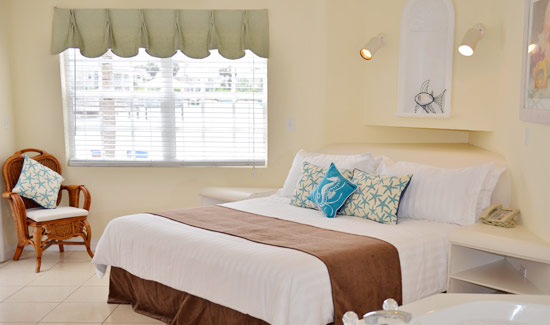
The $3.5 billion Baha Mar resort has failed to confirm or deny that one of its hotels may owe thousands of dollars to the Bahamas Electricity Corporation (BEC).
In response to a question as to whether one of the Baha Mar hotels may be among those highlighted by BEC Executive Chairman Leslie Miller as in arrears by a substantial amount, Senior Vice President of Finance and Corporate Alliances for the resort Vaughn Roberts said that the company is focusing all of its resources on ensuring that Baha Mar opens successfully.
While the company “intends to honor” all of its financial obligations, Roberts added that people must be reminded that Baha Mar “is an investment today for the future of everybody”.
“It’s a struggle – it’s a struggle to make money in this business that we’re in and so that’s why it’s so critical for us to really marshall all of our resources to deliver a successful opening of Baha Mar,” said Roberts, who appeared as a guest on Guardian Radio 96.9 FM’s “Morning Blend” show yesterday morning.
Recently, BEC Executive Chairman Leslie Miller sent out a warning to major hotels and large commercial consumers to either pay up or face disconnection, as the corporation clamps down on arrears.
Miller said BEC is owed millions of dollars and the corporation cannot allow major hotels and other companies to remain delinquent.
While applauding the chairman’s practical and prudent approach to collecting its outstanding receivables, Roberts stressed that major hotels like Baha Mar are still operating in a very challenging economic climate.
“One of the interesting things about our economy is really the high cost of utilities. In the tourism business, it makes it very difficult to offer the kind of value for dollar to the guest that comes here particularly when you look at competing destinations,” Roberts said.
He added that the pressure from the BEC chairman is “acceptable” but added that “the reality of our time is that we are in a difficult economic environment and people tend to pay when they are able”.
Roberts said the high cost of energy is an issue that must be addressed soon as the burden not only falls on hotels but the average Bahamian citizen.
“These hotels use a significant amount of energy and we as a country have got to come together to find more effective, efficient and lower costs when it comes to finding sources of energy,” he shared.
“We need to revisit the significant elements of cost in our income statement and energy is a significant one of those.”
Meantime, Bahamas Hotel and Tourism Association (BHTA) President Stuart Bowe said he believes that most hotels are compliant with their obligations to BEC.
The hotelier told Guardian Business that the BHTA is aware that some hotels have been delinquent in their BEC payments, but is not aware of any specific hotels.
“Recognizing that the past several years have been extremely challenging financially for many companies, we have requested BEC’s support in working with hotels on payment arrangements,” he said.
“We have also encouraged our members who are delinquent to contact BEC to agree on a payment plan. This is really a matter between BEC and its customers.”
Bowe pointed out that energy costs continue to pose a “major” challenge to the hotel sector, representing anywhere between 15 and 20 percent of a resort’s operational costs.
“This is a major challenge for the industry. Next to labor, it represents the second highest expense. Energy costs represent between 15 and 20 percent of operating costs.”
However, he did stress that every hotel has a responsibility to meet its BEC obligations and he is therefore encouraging any affected parties to negotiate a payment plan with the corporation.
“The anticipated reduction in the fuel charge, which we have been told will result in as much as a 10 percent reduction in energy costs, presents a great opportunity for those savings to be applied to one’s outstanding balance,” according to the BHTA chief.
Scieska Adderley
The Nassau Guardian



